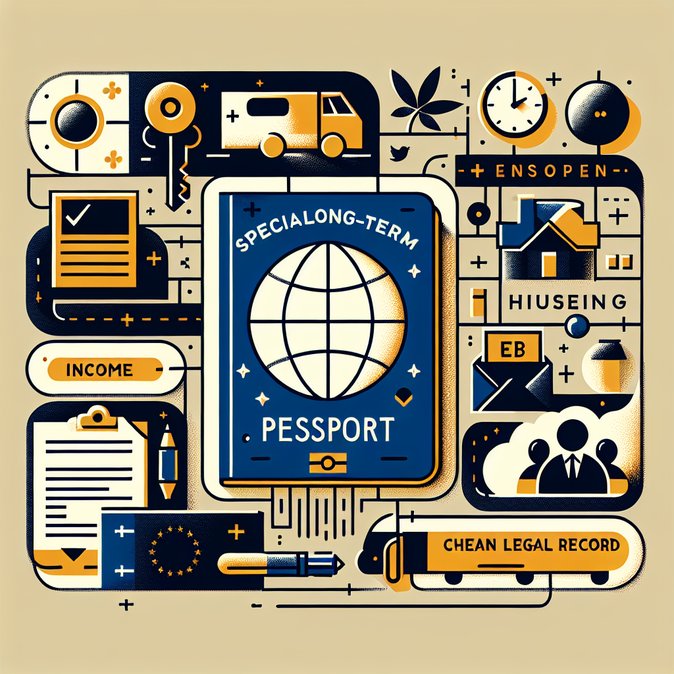
The Czech Ministry of the Interior has published a ministerial notice creating an entirely new "special long-term residence" permit for Ukrainians who are currently in the country under the EU Temporary Protection Directive.
Under the scheme, eligible applicants will be able to swap the year-by-year temporary-protection sticker in their passports for a five-year biometric residence card that carries identical labour-market rights and Schengen travel privileges. The ministry says the change is meant to give both refugees and Czech employers a predictable planning horizon as the bloc prepares to phase out temporary protection at the end of 2026.
![Czechia Offers Five-Year Residence Permit to Ukrainians Under Temporary Protection]()
The criteria are deliberately stringent. Main applicants must show untaxed income of at least CZK 440,000 (≈ €18,000) for the previous calendar year plus CZK 110,000 for each dependent, present a lease or property-ownership deed valid for the full five-year term, and submit an apostilled police-clearance certificate. The ministry estimates that roughly 65,000 of the 330,000 Ukrainians in Czechia already meet the threshold, most of them skilled workers in manufacturing, IT and healthcare.
For mobility managers the new permit removes a chronic HR headache. Since 2022, companies have had to renew temporary-protection documents every 12 months, triggering repeated compliance audits and creating uncertainty in head-count forecasts. A five-year document will allow Ukrainian staff to be placed on multi-year assignment cycles, included in succession planning and seconded abroad for up to 90 days per 180-day period without additional paperwork.
NGOs have broadly welcomed the measure but warn that the income and documentation requirements could exclude the most vulnerable families. The Interior Ministry says it will review the criteria in mid-2026, when the first permits are expected to be issued, and may create a lower income band for retirees and single parents if budget projections allow.
Under the scheme, eligible applicants will be able to swap the year-by-year temporary-protection sticker in their passports for a five-year biometric residence card that carries identical labour-market rights and Schengen travel privileges. The ministry says the change is meant to give both refugees and Czech employers a predictable planning horizon as the bloc prepares to phase out temporary protection at the end of 2026.

The criteria are deliberately stringent. Main applicants must show untaxed income of at least CZK 440,000 (≈ €18,000) for the previous calendar year plus CZK 110,000 for each dependent, present a lease or property-ownership deed valid for the full five-year term, and submit an apostilled police-clearance certificate. The ministry estimates that roughly 65,000 of the 330,000 Ukrainians in Czechia already meet the threshold, most of them skilled workers in manufacturing, IT and healthcare.
For mobility managers the new permit removes a chronic HR headache. Since 2022, companies have had to renew temporary-protection documents every 12 months, triggering repeated compliance audits and creating uncertainty in head-count forecasts. A five-year document will allow Ukrainian staff to be placed on multi-year assignment cycles, included in succession planning and seconded abroad for up to 90 days per 180-day period without additional paperwork.
NGOs have broadly welcomed the measure but warn that the income and documentation requirements could exclude the most vulnerable families. The Interior Ministry says it will review the criteria in mid-2026, when the first permits are expected to be issued, and may create a lower income band for retirees and single parents if budget projections allow.









